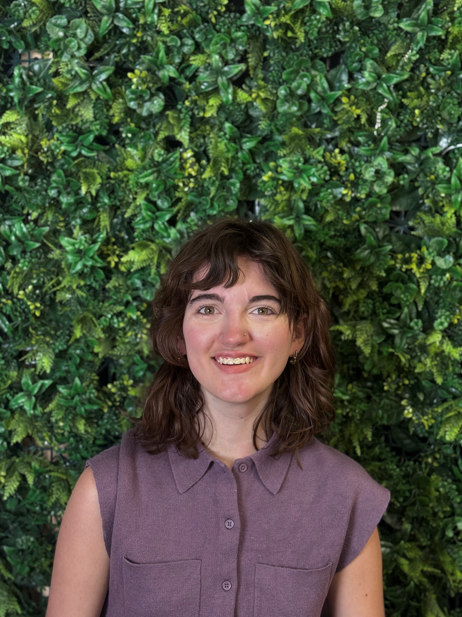 By Patchen Barss
By Patchen Barss
Leadership training often differentiates between “taking space,” and “making space.” Both are valuable — sometimes people need to learn how to assert their own voice and ideas, and sometimes they have to learn to step back and make room for others.
In some situations, though, the two are not in opposition.
“I hope I’ve made space for others by taking up space myself,” says Sable Pryznyk, a 17-year-old Aldershot student on her way to the University of Ottawa to study English and Commerce. Pryznyk, a natural leader, community builder, and storyteller, is interested in representation.
“As someone with a physical disability, I have always found representation either invisible or inaccurate,” she says. “It often comes in the form of someone’s sad story about their cousin’s friend's brother who has an extreme version of some condition. But I don’t think my story is sad.”
This analysis cultivated her ability to make space by taking space. Her achievements in sports, student journalism, and advocacy not only makes her an inspiration and role model within her community, but also demands others view her as a complete human being, and resist essentializing her on the basis of a physical disability.
“I want people to stop assuming they know what my life is like because they once met someone with a vaguely similar diagnosis. My disability doesn’t define me any more than your favourite book defines you. It’s part of my reality—but it’s not my personality,” she says.
Pryznyk has a version of a rare condition known as Leber hereditary optic neuropathy, which affects her speech, hand movements, balance, and fatigue. As is often the case, she faced more challenges from society’s perception of her condition than she did from the condition itself.
“When I was first diagnosed, it would’ve been easy to internalize what everyone around me was saying—that my condition would just keep getting worse and that I should lower my expectations,” she says. “I don’t believe that anymore.”
As a young child, she first found joy and belonging when she joined a sled hockey team. She later became a coach, first for kids and later for adults, helping to ensure many others have the same chances to build community and camaraderie she had. In this and many other ways, she continues to make space by taking space.
“Through my writing, advocacy, and leadership, I want to make sure future generations see themselves represented, empowered, and celebrated,” she says.
Pryznyk’s EKO scholarship is supported by the former Ontario Association of Families of Children with Communications Disorders, which donated the funds to EKO as part of their recent dissolution. This support inspires Pryznyk to keep pushing for a world where every kid can find their own role model and place to belong.
“This scholarship means more than just money—though I won’t lie, the financial support does help take pressure off,” she says. “Symbolically, it’s proof that someone saw value in my story and believed in where I’m headed. That means everything. It makes me feel less like I have to scream to be heard. When you grow up disabled, especially in spaces not built for you, you get used to being underestimated or overlooked. This award tells me, ‘You belong here. Keep going.’ And on the days when I question if I’m doing enough or if it’s all worth it, that reminder matters.”
Meet our 2025 EKO Scholars